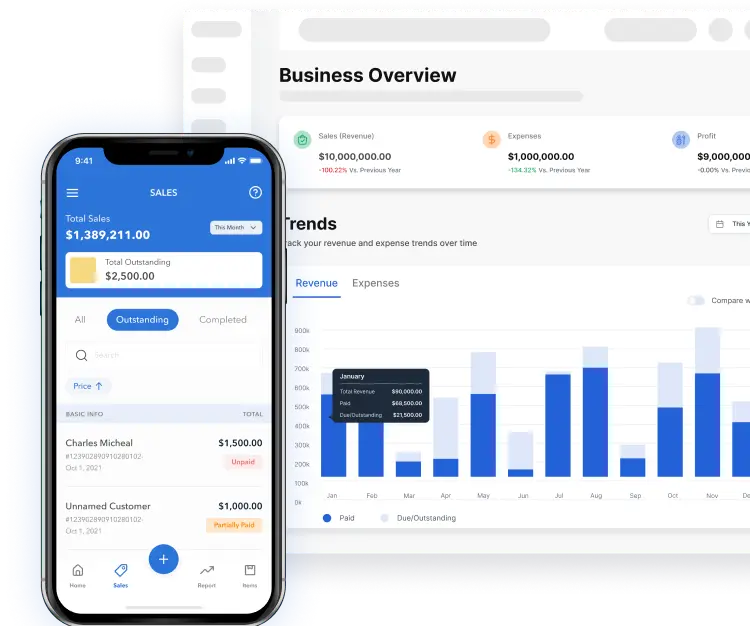Changing times are bound to bring new challenges to today’s businesses, and those in the realm of accounting are no exception – accountants and finance professionals have to deal with a lot more than just crunching numbers; solving accounting problems is a fixed part of their daily routine.
It’s bound to get hectic, especially for those not part of large corporations but who have to do all the accounting work as solo entrepreneurs, small business owners, or startups.
Do you happen to fall into one of these categories? Then you’ll find yourself to be on your toes more often than not when managing your financial accounts.
Let’s look at some of the standard accounting problems that you’ll be prone to run into and how you can solve them.
- Cash flow problems
- Bookkeeping is key
- Lack of capital
- Securing your data
- Remote work
Cash flow problems
Account problem solving begins with taking poor cash flow management into account. It can very well lead to your business going under, either big or small.
This is hardly an exaggeration. When the collapse of Carillion occurred, the company held just £29m in cash when it owed over a billion to banks.
The goal is to always stay on top of cash flow regardless of the situation. It doesn’t matter if there’s been low sales, a bad economy, or even market missteps. You’ve got to make your company survive with minimal damages.
You can do this by analyzing bills and making sure to chase payments from customers. Paying attention to monthly expenses and cutting costs wherever possible is also necessary to eliminate the risk.
A common mistake that you as an accountant can make is wrecking your credibility with suppliers. Try not to separate creditors into essential vs. non-essential categories.
You’ll end up ghosting those under non-essential, and these are the vendors and contractors that you’ll need once your cash flow starts picking up again.
An important thing to keep in mind is understanding the reasons behind certain expenses.
A thorough analysis and efficient accounting problem solving can be done with Vencru’s expense tracking system – reducing unnecessary expenditure and allowing your business to grow.
Bookkeeping is key
Just because you have money in the bank doesn’t mean your business is doing well. If you want accurate information regarding your business’s financial health, being up to date with bookkeeping is the key.
Bookkeeping involves recording everything from cash in/outflows, taxes, incomes to expenses that are taking place in your business.
There are numerous benefits to be reaped if bookkeeping is done diligently, which becomes much easier to avoid common accounting problems.
Especially for those not experts in the area, such as startups, it’s almost inevitable to make bookkeeping mistakes, so there’s no shame in using account software such as Vencru that can make the managing process much easier less grueling.
Budgeting becomes easier as assessing financial resources isn’t a wall of complications anymore. Filing taxes won’t be a nightmare either, and you’ll find records to be a lot more organized.
Your business will thrive with improved decision-making, and attracting investors will be a breeze as it’ll be much easier for them to assess financial performance.
Lack of capital
A critical accounting problem is that of a business’s capital management. Although how much capital you need depends on your company’s situation and goals. There should be enough to keep your business from tanking.
One way to free up capital if tied up is by using the invoice finance option. This comes in two forms: invoice factoring, which involves business owners selling unpaid invoices to a ‘factoring company’ for a percentage of their total value.
The other is invoice discounting – This is the process of using unpaid accounts as collateral to secure loans for a percentage of their value.
Taking advantage of advanced invoicing software generates automated sales, tracks invoices, manages your time efficiently, saves your payment records, secures your transactions, and helps you get paid much faster.
One tip you can keep in mind when managing funds is to save up to four to six months’ worth so that any immediate expenses such as rent, inventory, supplier bills, and short-term debts can be dealt with and covered without hassle.
Securing your data
As your business grows, you will begin to have more sensitive financial documents from your accounting clients.
Over the years, many big companies have been targeted and have faced data breaches that had dire consequences. This is no surprise considering how the world is becoming increasingly dependent on technology in every sphere.
Since it is crucial to protect your client’s private information and minimize your liability by maintaining reliable data security practices. Data security should be at the forefront of your priorities, and modern accounting software should be utilized.
Here are 3 tips you can implement to ensure any unwanted hackers don’t get a hold of your data.
- Protect your passwords
- Implement multi-factor authentication
- Keep your software up-to-date
Protect your passwords
Nowadays, hackers have evolved enough to be using sophisticated tools to crack your password, so make sure that it is strong and not something generic based on your company or personal details.
Make the sequence complicated, mix and match letters, symbols, and numbers, and avoid sharing passwords across other accounts.
Implement multi-factor authentication
Go the extra mile and implement a solid multi-factor authentication that involves additional layers of verification outside of just inputting a password.
Since it requires access to hardware or other accounts to log in, you end up with some extra locks on your data and fewer accounting problems to deal with.
Keep your software up-to-date
Once you make a habit of routinely updating versions and patches to make it a point of being on top of security protocols, there will be nothing to worry about. Both you and your clients can stay rest assured of minimum to zero chances of your financial data falling into the wrong hands.
Remote work
A modern challenge that accountants will find themselves with is the desire for more flexibility and remote work options.
Around 77% of accounting professionals would gladly ditch the office and opt for the remote possibility of its problems with accounting-led work.
A significant risk to deal with is that of fraud. Remote working involves a virtual connection. Monitoring employees can become difficult as there’s no way to know what’s happening behind the screen.
Your company would have to adopt new remote work policies and figure out how to manage the breakage in the smooth communication channels that you’d usually find in office settings. With today’s online management tools, however, this is easily manageable.
Ensuring accountability within audit teams and providing employees with the required access to data to maintain transparency are some ways to counter problems with accounting for remote workers.
Make sure you stay tuned to our blog to get more amazing resources to help you navigate the market as a small business. Good luck!





